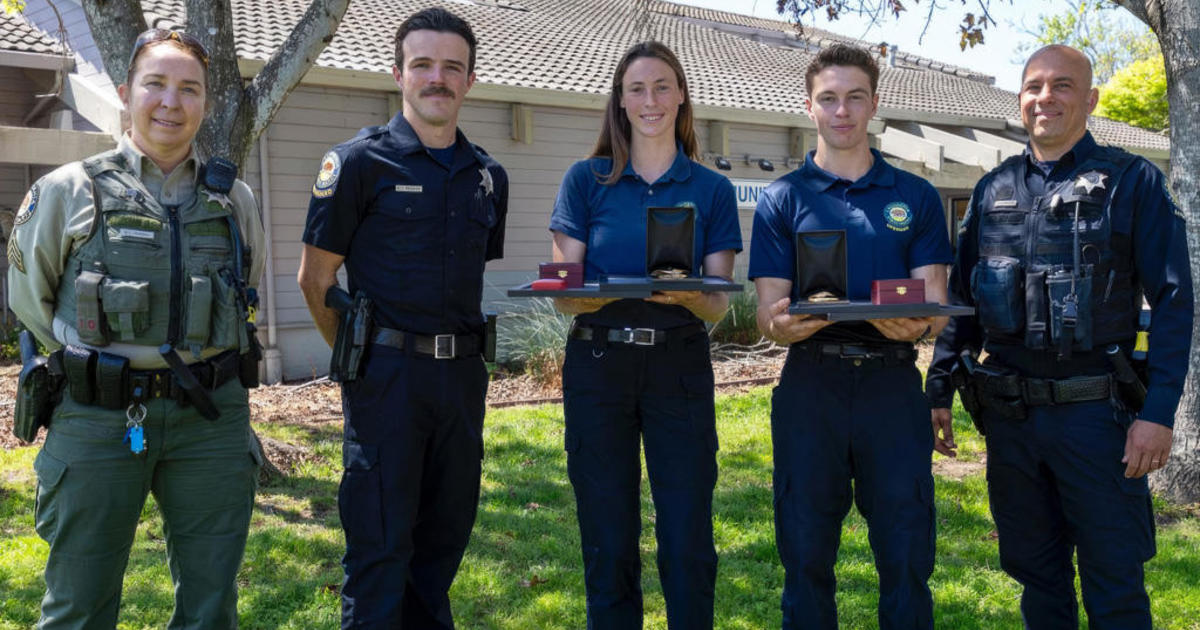Berkeley Woman Attains Degrees From Boalt Law School, Yale Following Childhood In Multiple Foster Homes
BERKELEY (CBS SF) -- Lily Eagle Colby is a standout in any crowd, even among the best and brightest graduating from Boalt Law School at UC Berkeley, one of the best law schools in the country. She graduated from Yale before that, with a degree in Economics. But what makes these accomplishments even more impressive is the fact that Lily was a foster child, moving through seven or eight foster homes before she graduated from Berkeley High School in 2005.
"It's exciting!" she says about her new law degree. "I'm looking forward to finally getting to do what I wanted to do forever which is to help my community help foster children."
Fewer than half of all foster kids finish high school. Only two to three percent finish college. However, there are no statistics for what Lily has done, and she did it in spite of a learning disability. "Law school and dyslexia don't really mix that well, but you can do it!" she says, laughing. "I had to really learn the material backwards and forwards so that I'd be prepared on exam day."
We first saw that steel-plated determination 10 years ago, when she was a senior at Berkeley High. Her dyslexia does not affect her math abilities, and she scored a perfect 800 on her SAT exam. She was a state champion wrestler, a linebacker on the school football team, and a student representative on the Berkeley School Board. No one would have guessed she was a ward of the court.
Her teacher Wyn Skeels told us, "She's incredibly diligent and resilient; one of the hardest working people around, but also really, really compassionate." That compassion comes from her empathy for those who are growing up like her. "I understand what it's like to have all your stuff put in black plastic bags and taken to a new home. I was separated from my three brothers. We all ended up in different foster homes."
Lily's parents lost custody of her and three brothers when drugs and poverty took over the home. "It's very chaotic," said Lily in 2005, as she described their childhood home. "There were homeless and prostitutes and drug dealers and drug addicts so as a little girl I grew up, oh, how do you do this math problem."
She was 11 when she saw something that changed her. "One of my mom's friends was overdosing in my kitchen, in front of me, and my neighbor friend who was her daughter my age who I played with, was screaming at the top of her lungs, 'your mom did this - my mom is going to die!' Her mom survived and my mom is still alive, struggling still with drug addiction."
The path to law school may have started at that moment. "I knew that I didn't want to end up in somebody's kitchen dying of an overdose like I didn't want to end up in poverty, and I realized that I only had one shot if I messed up once, I would fail and end up on the street."
She knew there was nobody to catch her if she fell. "If you have supportive family but if you don't and you mess up once it's hard to ever recover from that and I mean a lot of kids form my neighborhood have ended up incarcerated. Either selling drugs or selling their bodies."
Meanwhile, her teachers at Berkeley High talked about college and opportunities. School became Lily's life; teachers became role models. She went from missing 52 days in the 5th grade, which she was failing, to missing only 2 in the 6th. She was named the most improved student in her grade. From then, she began to set a strict standard for herself to excel as if her life depended on it.
"I think the biggest thing that helped me was compassionate people along the way," says Lily. "Students Rising Above provided me with a mentor, Lisa, who supported me and was there when I was struggling with papers and calling her at midnight."
Lily understood how hard it can be to accept help "because it can be humiliating," but it can also make the difference between getting through college or not. "I really took the love and support of lots of different people to make up for not having that structured family environment."
It was also her determination that consistently put her in the top tier of whatever she took on. She didn't just rise above; she propelled herself like a pole vaulter.
Early on, Lily focused her care and attention on her youngest brother David, who has autism. "I didn't know if he was always safe. My mom might go away for a few days, or we wouldn't necessarily have enough food," she remembers.
When they were separated, Lily would check on him like a mother bird, tucking him under wing as much as her age and situation would allow. At one point while in college, she acted as his foster mother.
So Lily learned early on what it takes to advocate for a foster child, particularly one with a disability. Now, she wants to use her law degree to become a legal advocate for foster children.
Instead of searching for that job, she made her own. She designed a fellowship through Equal Justice Works, sponsored by Pillsbury Winthrop Shaw Pittman. It allows her to spend the next 2 years at the Youth Law Center training foster and adopted families on how to support their kids.
That work will have to wait a while. First she has the bar exam. And two days after she graduated from Boalt Law School, Lily Eagle Colby got married.



